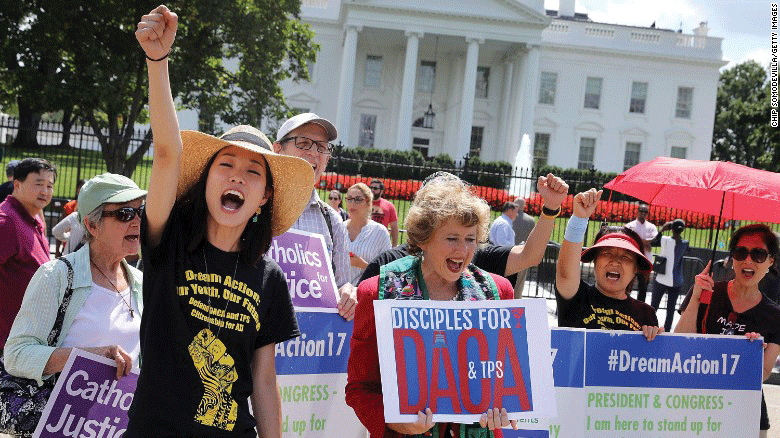Colgate Responds to DACA Decision
Colgate’s administration reaffirmed the university’s commitment to supporting students reliant on the Deferred Action for Childhood Arrivals (DACA) program following President Trump’s decision to end the program, announced on Tuesday, September 5.
Trump is now calling upon Congress to find alternative protections for “dreamers,” or children of undocumented immigrants under the age of 31 who entered the United States under the age of 16, within the next six months, according to The New York Times. The program was created in 2012 under the Obama administration to protect dreamers by providing deferred deportation and renewable two-year legal presence in the United States.
Following Trump’s announcement last week, Colgate President Brian Casey and Vice President and Dean of the College Paul J. McLaughlin II addressed the issue in emails sent to faculty, staff and students including support networks and resources for those impacted. In addition, Casey sent a letter with the New York Six Liberal Arts Consortium to members of New York’s Congressional and Senate delegations to ensure the safety of New York inhabitants dependent on DACA.
“DACA beneficiaries have been outstanding students on our campuses; their presence has enriched the learning environment for all of our students. The end of DACA will diminish our campuses, our communities and our country,” the letter states.
While the topic is being recognized by the administration, junior Jocelyne Andrade feels there hasn’t been enough conversation or action around campus and fears any current motivation will soon be forgotten.
“I think Colgate is doing the bare minimum. The administration is recognizing that there is an issue and willing to pull together ‘resources’ for those DACAmented students, but I think they could take it a step further and actually provide legal or financial assistance for those in need,” Andrade said.
Associate Professor of Economics Chad Sparber studied the repercussions of DACA on New York college campuses, particularly on public colleges and universities. The DACA program granted in-state tuition for undocumented children in New York and other states’ public colleges and universities, so this change in policy may result in a significant change in New York’s student population.
“A co-author and I examined whether this policy has had its intended effect of increasing college enrollment among young people who are likely to be residing in the U.S. illegally. We find that it does: they are about four percentage points more likely to be enrolled in college if they live in states allowing unauthorized immigrants to pay resident tuition rates,” Sparber said.
While this specific tuition issue would not affect a private institution such as Colgate, Andrade is concerned about the undocumented students on Colgate’s campus who may not have the financial means to renew their visas.
McLaughlin wrote that the school has already reached out to those they know are affected. Additional resources are available through his office, the Office of International Students, the Office of the Dean of the Faculty and Human Resources.
“I think everyone should be angry, no matter what race or creed. DACAmented students have worked their asses off for their education and their right to be in this country,” Anandre said.
Contact Emily Rahhal at [email protected].
Emily Rahhal is a senior from Los Angeles, California double concentrating in Middle Eastern and Islamic Studies and Religion. She has previously worked...







